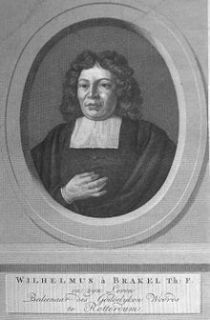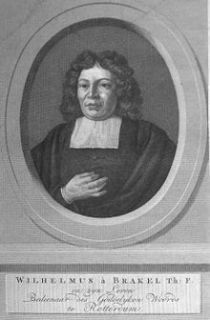
“The Long-suffering of God
This is an essential attribute of God whereby He refrains Him- Self from initially pouring out His full wrath upon the sinner, thus postponing his punishment–meanwhile bestowing benefits upon him. It is God’s character to be long-suffering (Exo. 34:6). The Lord is long-suffering towards sinners in a general sense. ‘Or despise thou the riches of His goodness and forbearance and longsuffering; not knowing that the goodness of God leades thee to repentance?’ (Rom. 2:4). ‘What if God…endured with much long-suffering the vessels of wrath fitted to destruction?’ (Rom. 9:22).
God is long-suffering towards the elect prior to their conversion. ‘The Lord…is long-suffering to us-ward, not willing that any should perish, but that all should come to repentance’ (2 Pet. 3:9); ‘To declare His righteousness for the remission of sins that are past, through the forbearance of God’ (Rom. 3:25). God is long-suffering towards His children, as considered in their regenerate state, by not always chastising them for their sins (it being understood that the elect are not punished in the definitive sense of the word), but rather overlooking their failures and having much patience with them. ‘I will spare them, as a man spares his own son that serves him’ (Mal. 3:17); ‘Like as a father pities his children, so the LORD pities them that fear Him’ (Psa. 103:13). Such is the character of God, as we have extensively demonstrated to you. His character is holy, good, loving, gracious, merciful, and long-suffering.
You who are convinced of your miserable condition and are desirous to be reconciled with God, be not discouraged from coming to God. You need not be discouraged if your desire is to approach unto Him in truth, with sincerity, and in the right way, that is, only through Christ. Simply come: the Lord is not merciless, cruel, or pitiless. On the contrary, He is as He declares Himself to be in His Name: ‘The LORD, the LORD God, merciful and gracious, long-suffering, and abundant in goodness and truth’ (Exo. 34:6)! Just as the father of the prodigal son, the Lord runs to meet all who turn to Him from afar. He calls you, manifests Himself to you, and promises not to cast anyone out that comes to Him. Do not let fear restrain you from doing so, but come boldly to the Lord and His goodness.
And believers, how you do injustice towards the Lord when you view Him as cruel, merciless, pitiless, and always angry, because He neither immediately delivers you from your threatening and pressing circumstances, nor grants you your desires, nor answers your prayers. You dishonor God with such thoughts. You imagine things about God that are unbecoming of Him. Humble yourself for entertaining such sinful and God dishonoring conceptions. Refrain yourself from and be fearful of such thoughts. How detrimental it is to you when you dwell upon such thoughts. It will prevent you from praying believingly. You will rob yourself of a quiet confidence in God, frustrate the expression of your love towards God, and bring upon yourself darkness, restlessness, the hiding of God’s countenance, and a vulnerability towards sin.
Please conduct yourself no longer thus, but condition yourself to view God always in such a fashion as we have described Him to be on the basis of His Word. Acknowledge Him to be such and magnify Him in these perfections. If you have sinned or are in the way of affliction, believe firmly and seek to maintain a lively impression that God’s character is truly of such a nature. Therefore frequently humble yourself before Him as a child and be at liberty to go to God believing Him to be such, not only as far as His character is concerned but also that He is such a God in regard to you. Rejoice in this and without fear commit both yourself and your case to Him. You will experience that it will be to your comfort and joy as well as promote intimate communion with Him, strengthen your faith, and result in progress in the way of sanctification. Then the holiness of God will not discourage you but generate a childlike reverence in you; and it will become your delight to be holy, since He is holy.”
– Wilhelmus a’ Brakel (1635–1711), The Christian’s Reasonable Service (De Redelijke Godsdienst), Vol. I, p. 126-127




